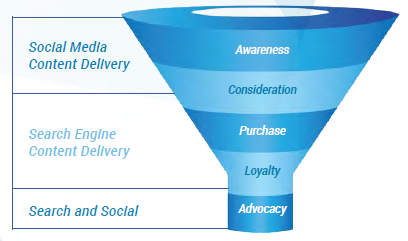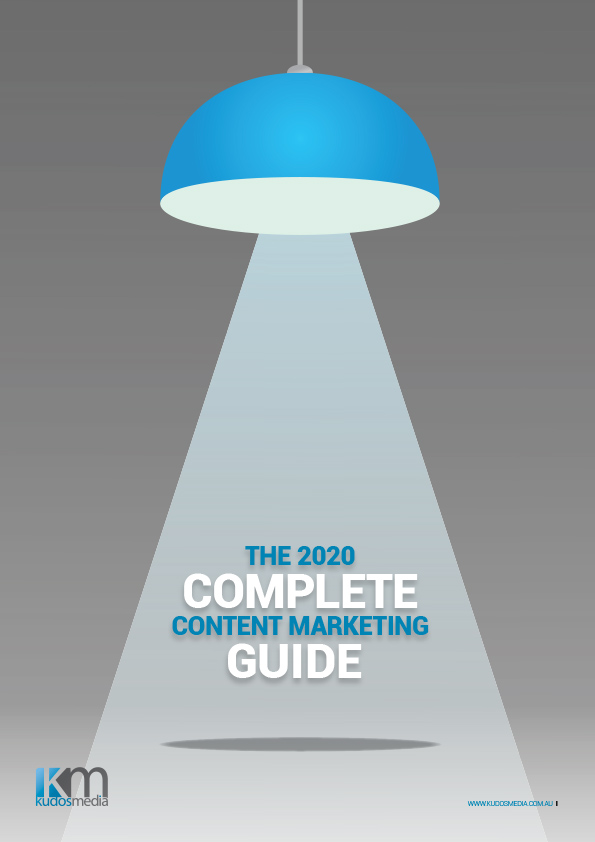Social Media vs Search Engines in the Conversion Funnel
 People browsing their social media feeds are usually not “searching” for anything specifically but rather are scrolling through general information or entertainment relevant to their interests.
People browsing their social media feeds are usually not “searching” for anything specifically but rather are scrolling through general information or entertainment relevant to their interests.
Conversely, search engine users are looking for specific information, knowledge or a solution to a problem. They know what they want and are searching for it.
Social media is “awareness” or “discovery” driven rather than solutions driven and therefore sits higher in the conversion funnel than content displayed in a search engine results page (SERP) as a result of search engine marketing (SEM) or organic ranking due to good search engine optimisation (SEO).
Well-targeted SEO or SEM is less about awareness (although it can still play that role) and more about providing a specific solution. If you sell engine oil or vehicle servicing and someone is searching for “how to change the oil in a Subaru Outback” then clearly they are already “considering” purchasing the necessary materials or booking in with a mechanic if it appears too hard.
By providing audiences with a simple step-by step guide or instructional video on changing their oil (and optimising that content well for search engines) your message and brand will be more relevant to that person’s immediate desires than it will ever be on social media.
The same content optimised on social media to reach local Subaru owners with interest targeting geared towards DIY would still create traction but these people are less likely to already be in the “consideration” phase.
That said, social media alone can also channel people from “awareness” at the top of the conversion funnel right through to “purchase” and “loyalty”, something that search engines alone struggle will to do.
Furthermore, consider that a conversion does not always mean a financial transaction but rather a transfer of data or engagement with owned assets – such as website or newsletter signup as well as online advocacy. This ultimately has the potential to lead to a sales conversion and advocacy.
In that case, understanding this social media conversion funnel is important because of its capacity to create awareness and engagement with the brand.
Social Media Conversion Funnel
Awareness Touchpoint 1: Attract / Educate / Inspire See the brand on social media - native or advertised.
Consideration Increased content consumption.
Purchase/Conversion Touchpoint 2: Engage Like, Follow, Share and Comment: Drive opportunities to share the consumption experience.
Loyalty Touchstone 3: Ongoing Engagement Conversion to regular EDM, blog and extended social engagement.
Advocacy User sharing, @ # tagging: engagement/reward/repost/User Generated Content is necessary here to drive retention and advocacy.
Of course, it is important to reach people throughout the conversion process, however content should be created, optimised and delivered specific to the delivery platform and the audience’s location in their own unique buyer journey.
DOWNLOAD our Complete Content Marketing Guide
The Complete Content Marketing Guide is a 30-page white paper detailing all aspects of developing, refining and implementing a content marketing and marketing automation strategy.

Content Marketing Strategy Development
Establishing Content Marketing Goals
Audience Analysis
Marketing Automation
Content Metrics and ROI
– Digital Content Distribution:
– Social Media
– SEO
– Video
– E-Newsletters
– Content Seeding and Amplification
Print Content Considerations
Legal considerations





